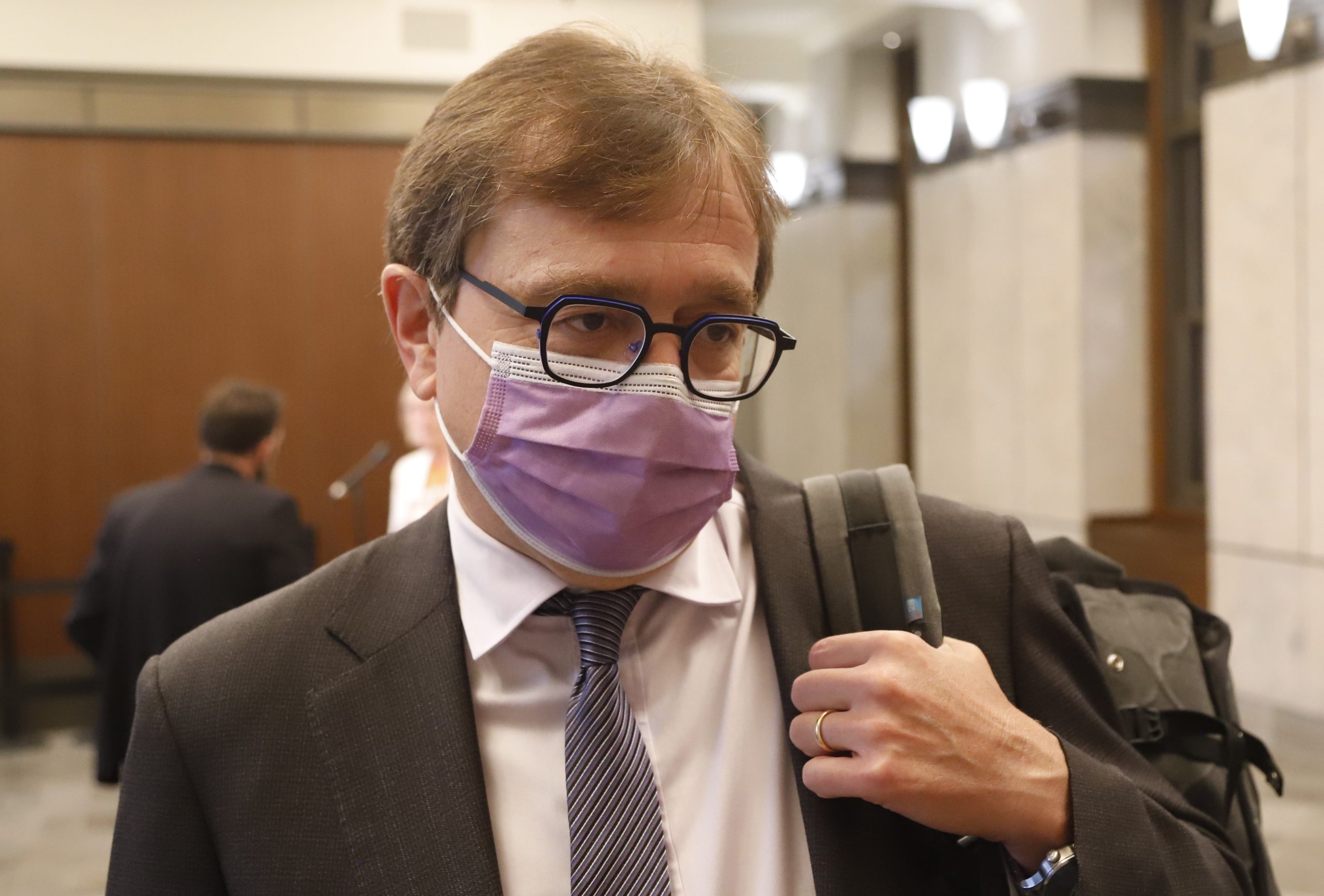Business and Economy
Gas tax break not currently on table as Liberals battle affordability problems

Natural Resources Minister Jonathan Wilkinson speaks with a reporter after a cabinet meeting on Parliament Hill in Ottawa on Tuesday, June 21, 2022. THE CANADIAN PRESS/ Patrick Doyle
OTTAWA — The federal government has no immediate plans to cut prices at the pump by offering Canadians a temporary reprieve from the federal gas tax, Natural Resources Minister Jonathan Wilkinson said Tuesday.
Canada is looking to stabilize global oil prices by increasing supply, something Wilkinson said is starting to happen. He said aid for Canadian families in the meantime is focused on areas Finance Minister Chrystia Freeland highlighted in a speech last week.
Those include required annual increases to federal benefit cheques such as the GST rebate and Canada Child Benefit, cuts to child care costs under the new federal-provincial child care agreements and increases coming this summer to both the Old Age Security pension and Canada Workers Benefit that were announced in the 2021 budget.
Freeland says the measures together add up to almost $9 billion.
Conservatives have called on the Liberals for months to cut gas taxes, including lifting the GST from gasoline, temporarily suspending the carbon price, or lifting the 10 cents per litre federal excise tax.
At the moment, Wilkinson said gas tax changes aren’t in the cards.
“We haven’t ruled anything off the table in the future, I think it would be irresponsible to do that at this point,” he said. “But the plan right now is what Minister Freeland said it was.”
Wilkinson’s comments come a day after U.S. President Joe Biden mused about slashing the federal gas tax south of the border. Other measures to curtail rising gas prices, such as releasing oil supply from U.S. reserves, haven’t worked.
If the Biden administration follows through on the gas tax plan, it would make Canada the only remaining G7 country not to have recently cut gas excise taxes or offered a subsidy to help lower pump prices.
Global oil prices are up 70 per cent in the last year, surging mostly since February following Russia’s invasion of Ukraine. In Canada, average pump prices are about 70 cents more per litre than they were a year ago.
In March the United Kingdom and Italy slashed gasoline excise taxes, and Germany followed suit in June. In April, France offered a consumer rebate on gasoline. Japan has implemented a subsidy to fuel wholesalers.
Italy’s economic minister said earlier this month the gas tax cut was expensive, but that the country was collecting more value-added tax because of higher gas prices, and was funnelling that back to consumers rather than general revenues.
Canada’s GST revenue in 2021-22 was more than $14 billion higher than the previous year. That’s in large part because of inflation, including on the price of gas.
Germany found gas prices only lowered temporarily following its gas tax cut. But University of Calgary economist Trevor Tombe said Alberta’s cut to its gas tax seems to be having the desired effect.
Premier Jason Kenney cut the 13 cent provincial excise tax on gasoline on April 1 and said it will stay gone as long as the global benchmark price for oil is above $90 a barrel.
“You’ve had well over two full months of information and looking at what the effect of that policy change was on prices in Alberta, relative to an estimate of what prices would have been otherwise, then it looks like the entire value of the tax reduction was passed through to consumers,” said Tombe.
Alberta has the lowest gasoline price in the country on average right now.
However Tombe said cutting gas taxes is expensive and there are other ways to help ease the financial hit to Canadians that may be more efficient. That could include, he said, temporary boosts to income support programs.
“There’s far cheaper ways to provide support to families who need it, rather than eliminate the tax, which would benefit all drivers, even those who are higher income and may not actually necessarily themselves face affordability challenges,” he said.
The NDP is asking the government to double the GST rebate and increase the Canada Child Benefit by $500 this year to help with affordability.
Both programs are indexed to inflation but that increase is based on inflation one year earlier. So the increase is 2.4 per cent — about $7 more for the GST rebate per adult, and another $114 for the Canada Child Benefit.
Inflation in April was almost seven per cent but the annual inflation rate now won’t be reflected in benefit payments until next summer.
Tombe said the government could catch up earlier by indexing the payments quarterly instead of annually.
This report by The Canadian Press was first published June 21, 2022.
Mia Rabson, The Canadian Press





















